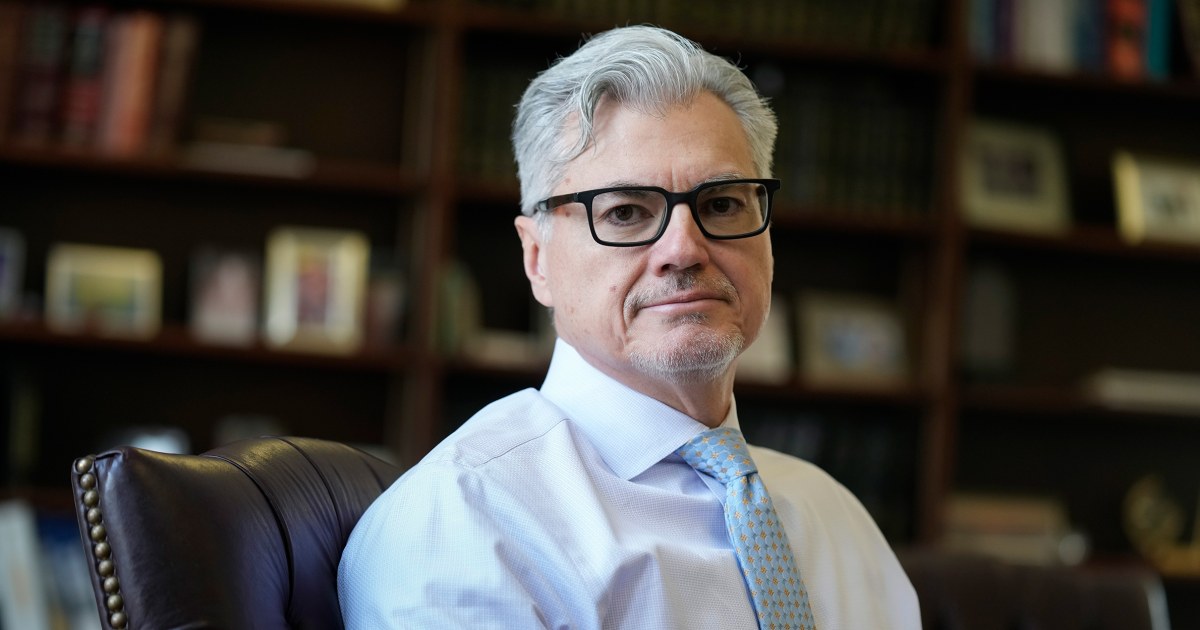Judge Juan Merchan was set to rule Tuesday on whether he would throw out Donald Trump’s guilty verdicts in New York. Instead, the only criminal case in which Trump has gone to trial is delayed again, and now he might not be sentenced before he takes office — or ever, if the president-elect has his way.
As with the two federal cases inevitably headed for the legal trash heap, the reason for this latest delay is Trump’s presidential victory. But the New York state case is in a different posture from not only the federal cases but also the Georgia state case, raising novel questions for what happens in the so-called hush money case in the coming weeks and, potentially, years.
As with the two federal cases inevitably headed for the legal trash heap, the reason for this latest delay is Trump’s presidential victory.
To recap the New York action, in May a trial jury found Trump guilty of 34 felony counts of falsifying business records, for covering up a scheme related to the 2016 presidential election. He was going to be sentenced July 11, but then the Supreme Court’s Republican-appointed majority issued the immunity ruling July 1. Trump’s lawyers cited the ruling to argue that the verdicts should be overturned and the indictment should be dismissed, contending that evidence introduced at trial and in the grand jury ran afoul of the high court ruling. Merchan delayed the sentencing until September and then to Nov. 26 because of the election, setting Tuesday as the date on which he would decide whether to overturn the verdicts or dismiss the case.
But Trump’s lawyers asked Manhattan prosecutors to agree to pause the proceedings due to Trump’s impending White House return. Prosecutors acknowledged the unprecedented circumstances and told Merchan that the matter requires “careful consideration to ensure that any further steps in this proceeding appropriately balance the competing interests of (1) a jury verdict of guilt following trial that has the presumption of regularity; and (2) the Office of the President.” They asked Merchan to give them until Nov. 19 (a week from today) to advise the judge on how they want to proceed. He agreed.
So, what happens now? It’s up to the parties and, if needed, the courts. Trump’s lawyers want the case dismissed outright. It’s unclear what District Attorney Alvin Bragg’s position will be.
But there’s no good reason for the Manhattan DA to drop the case simply because Trump will be president again. It’s one thing to say that nothing further should happen in any of his cases during the presidential transition period and while he’s in office. The federal cases haven’t gone to trial against Trump and never will; it’s just a question of when and how they’re buried — whether by federal prosecutors dropping them, Trump’s attorney general dismissing them, or Trump attempting a legally untested self-pardon.
The Georgia state case also hasn’t been tried, and it’s currently tied up on a pretrial appeal in the defense effort to disqualify Fulton County District Attorney Fani Willis; there are a bunch of Georgia co-defendants who could face trial while Trump is in office, but he wouldn’t stand trial until after he leaves. Presidents can’t issue pardons in state cases or get them dismissed.
If he really wants to put the matter behind him, he should be pushing in the other direction to have it resolved as quickly as possible.
The New York state case is different. Trump already went to trial. A jury found him guilty. Dismissing the case outright would disrespect the jury’s verdict and generally would not make sense. Trump could argue that it would interfere with his duties to have a sentencing hanging over him, but that’s his problem. He was convicted as a private citizen. What’s done is done. If he really wants to put the matter behind him, he should be pushing in the other direction to have it resolved as quickly as possible.
But as this latest delay shows, Trump may succeed in pushing a decision on whether he can overturn the verdicts and what his sentence would be if Merchan rejects his attempt to do so. It’s worth noting that incarceration is not mandatory in this case and that any imprisonment or other sentence, such as probation, could be delayed until Trump leaves office.
Even if he had lost the election and been sentenced to some relatively slight amount of jail time, Trump would have likely remained free pending appeal. And if Merchan were to overturn the verdicts as Trump requested, then that could give prosecutors a chance to retry him after he leaves office.
We don’t know what the state’s position to Merchan will be. Let’s assume, for argument’s sake, that prosecutors will say they agree to pause further proceedings until Trump is out of office. That might be a relatively reasonable position at this point, all things considered. But if they agree to an outright dismissal, that would be giving away the case for free.
Subscribe to the Deadline: Legal Newsletter for expert analysis on the top legal stories of the week, including updates from the Supreme Court and developments in Donald Trump’s legal cases.

